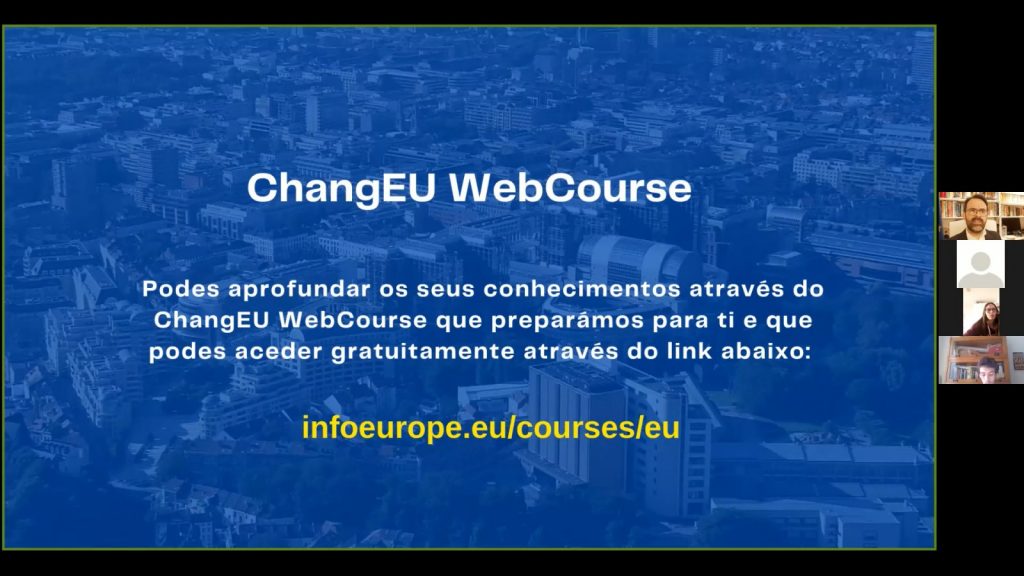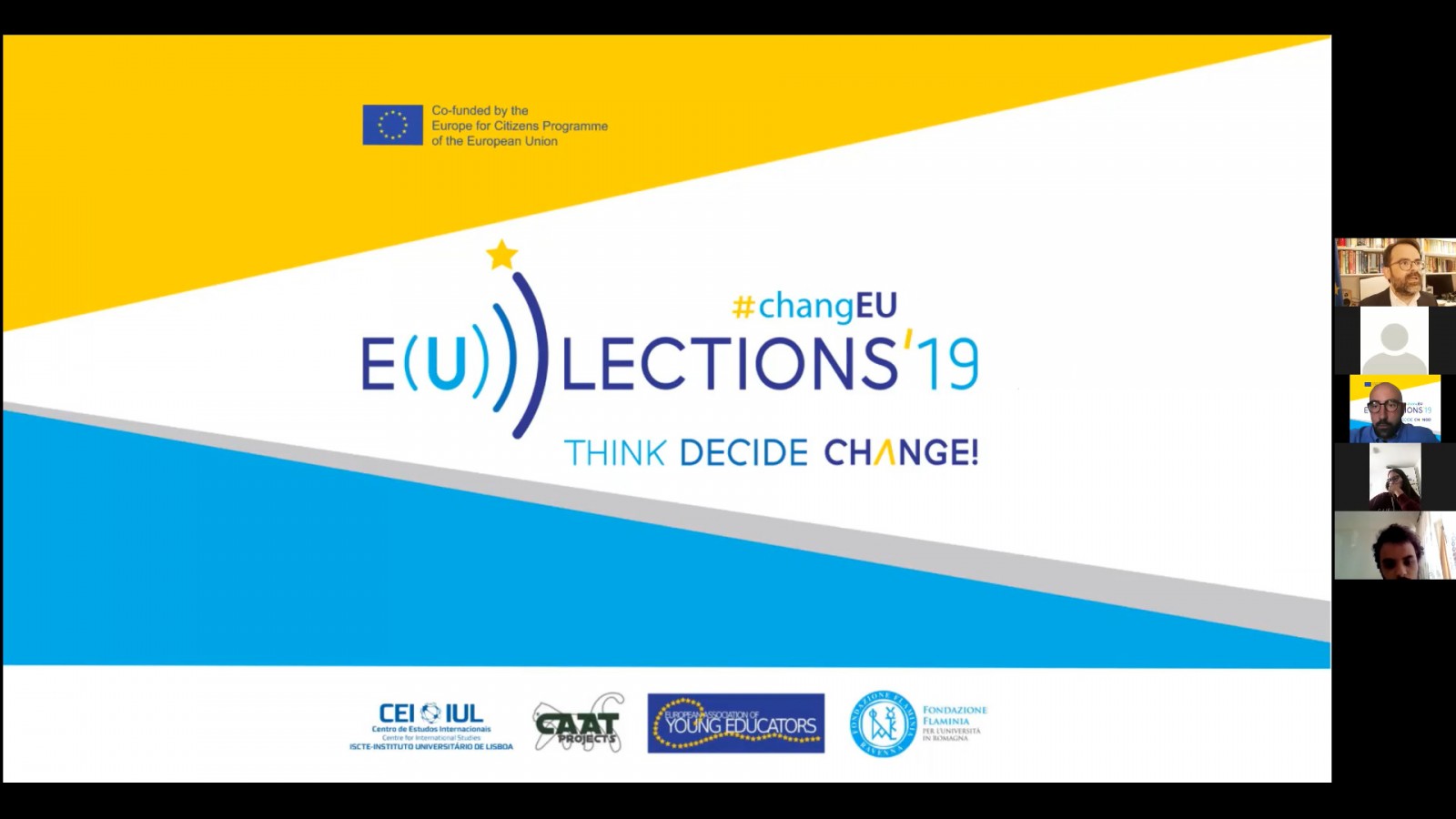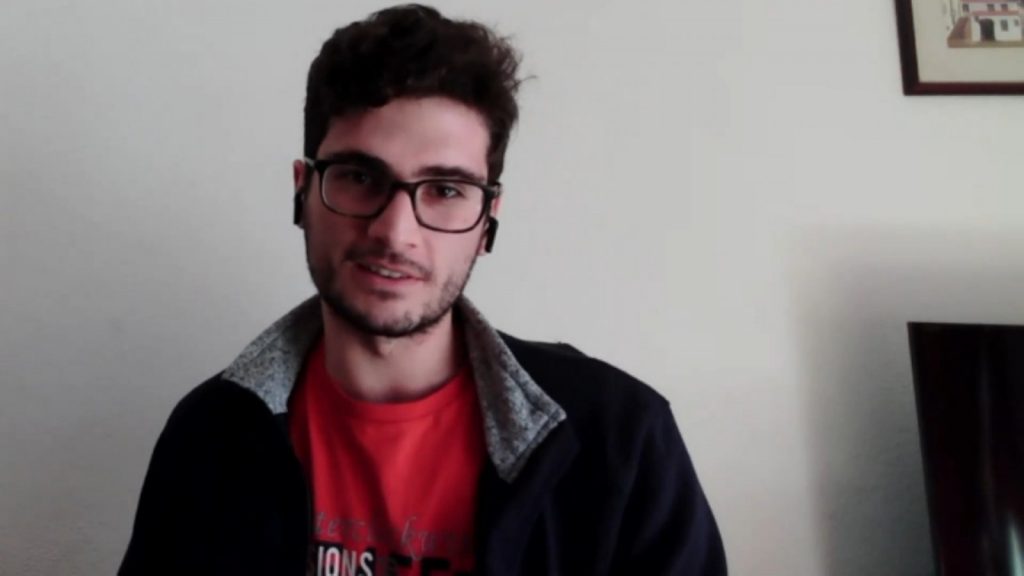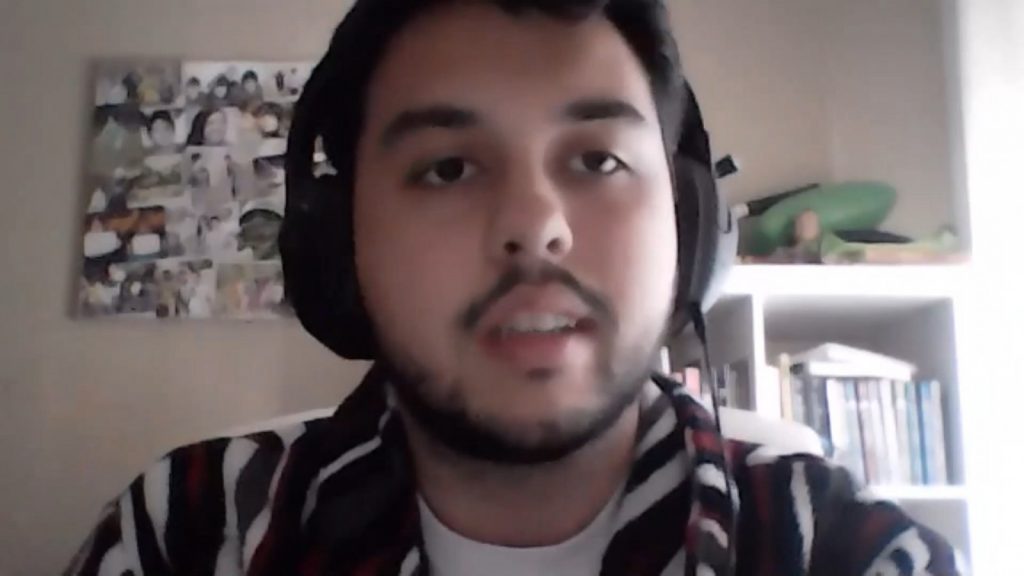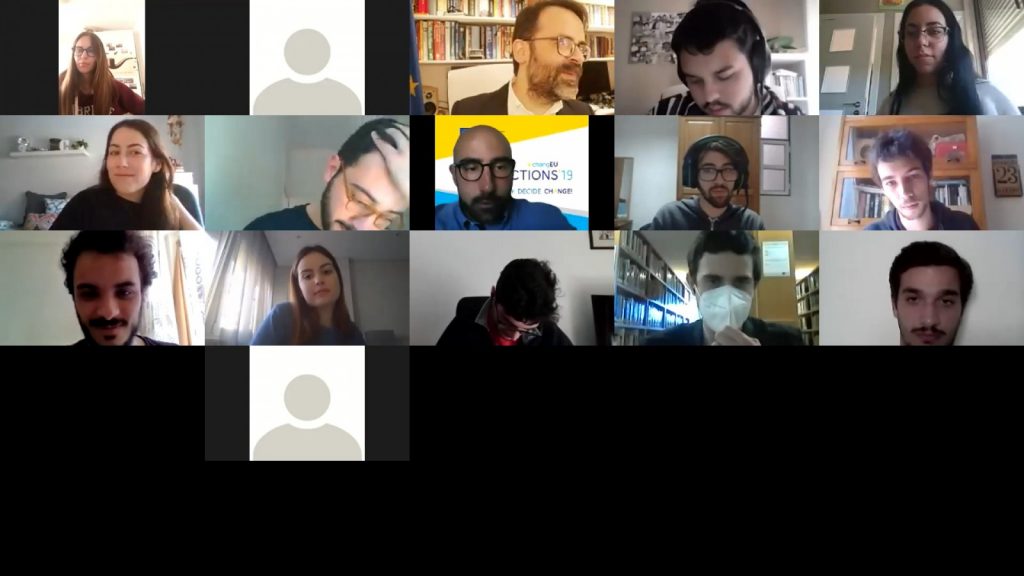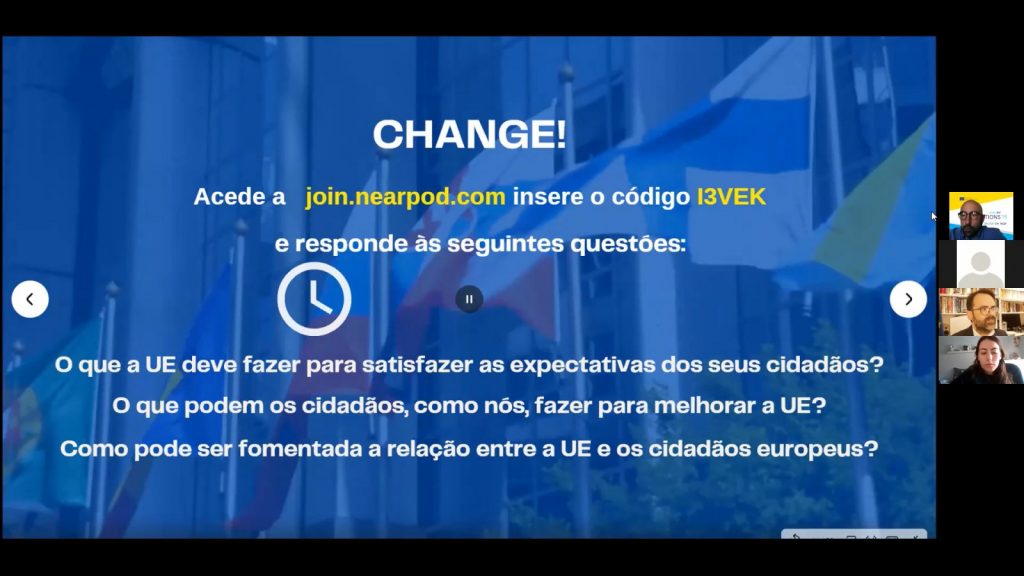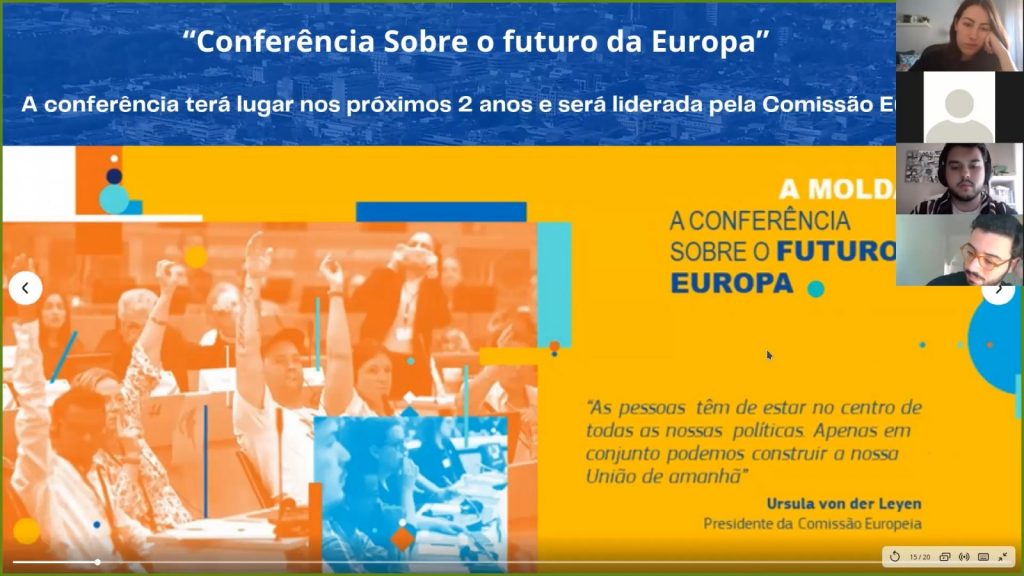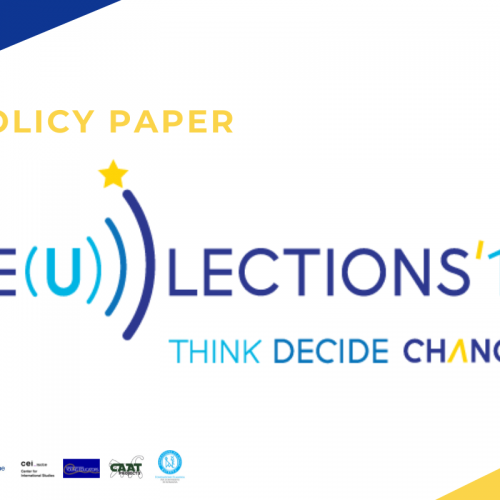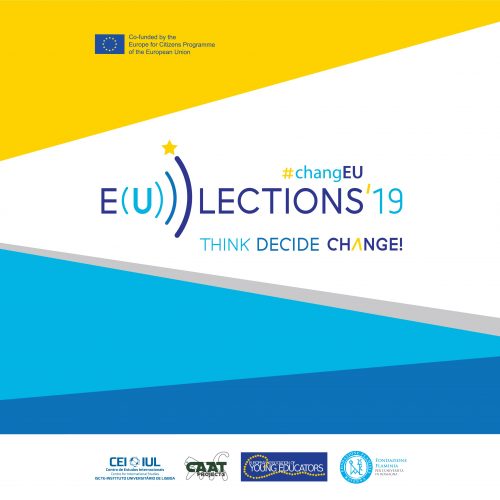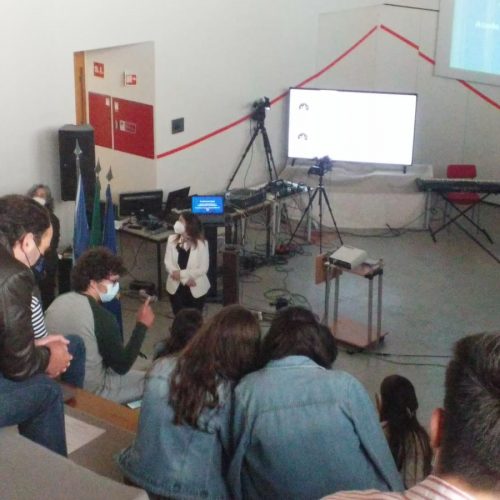On May, 4, 2021, the EULECTIONS’19 roadshow returned to Iscte, to promote an online workshop with Political Science students. The event involved 29 citizens, including 28 participants from the city of Lisbon, Portugal, 1 participant from the city of Madrid, Spain
The workshop started with a project presentation by the coordinator and the partners, followed by an introductory activity in which students where invited to share the first word they associate with the EU.
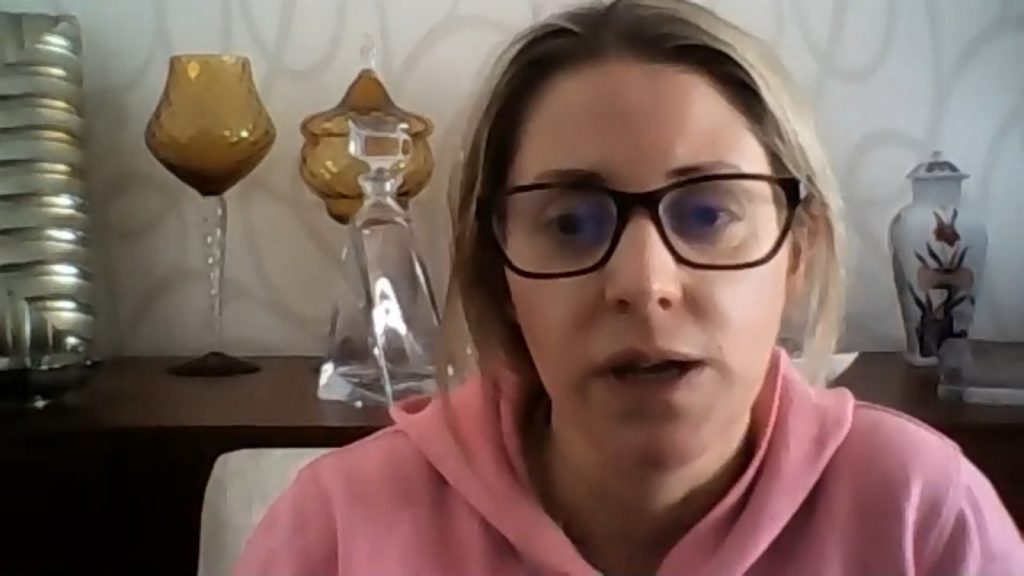
After the introduction, we’ve invited students to watch a short movie about the history of the EU and test their knowledge about the building of European community through a quiz. The first activities of the workshop aimed to set the floor to the discussion about the present and future of the European Union.
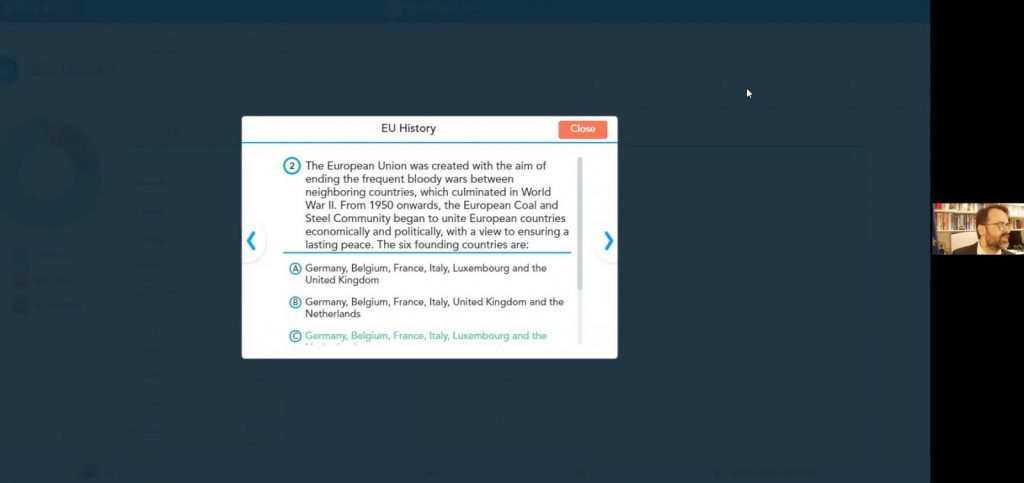
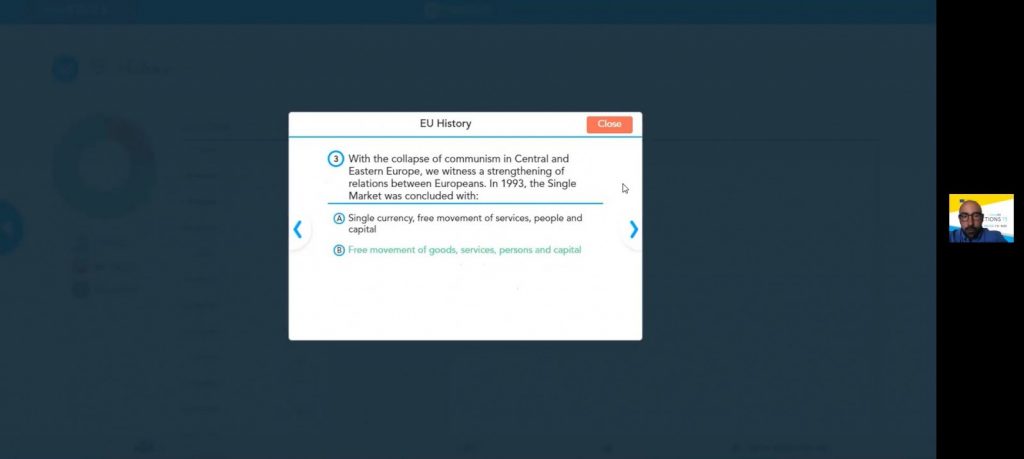
Following the quiz about Europe’s past and a brief commentary by the facilitators, we’ve presented a short video and additional background information about the White Paper on the Future of Europe and – Five scenarios. This was the starting point for the next activity, a group reflection about the pros and cons of the various scenarios. Participants were then divided in small groups to chose one of the five scenarios and reflect about it.
Each group’s main conclusions were presented and debated. For some of the participants, it’s important to set more ambitious goals for the future of the EU by developing the political union and improving its representativeness, although recognizing the risks of alienating those groups of citizens who oppose increasing the EU’s political role. For others, the more ambitious scenarios for the future of the EU are also difficult to achieve or even unrealistic in the short term, due to the very diverse socioeconomic conditions in the member states.
Another group of students considers important to improve and consolidate the current European model and its institutions and only then, advance to more ambitious goals. This strategy would contribute to improve EU’s relations with European citizens and reduce Eurocepticism although key important challenges remain, namely the international role of the EU and its ability to respond to international events and the development of common tax policies.
The debate was wrapped up with the individual vote on the preferred scenario for the future of the EU.
We then proceeded with the next activity in which we invited participants to present their suggestions regarding priority areas to be addressed by the EU to respond to its citizens’ needs and ways to improve the relationship between the European institutions and European citizens.
Regarding the priority areas for EU’s intervention, participants mentioned climate change and sustainability, the socioeconomic inequalities between countries and the refugees crisis. In order to improve its relationship with European citizens, EU institutions should be more transparent, promote participatory decision making, take into account each countries’ specificities and reduce bureaucracy. Citizens should also be more involved in European issues.
Following the collection of the students’ perspectives suggestions about European citizenship, we’ve shared two important initiatives regarding the future of Europe and citizens’ participation, the Conference on the Future of Europe and the European Citizens’ Initiative.
Finally, we’ve invited participants to continue to learn and share information about Europe through the online resource created by EULECTIONS’19, the ChangEU Webcourse.
